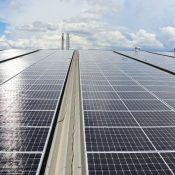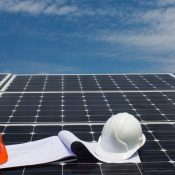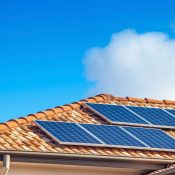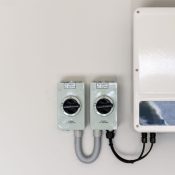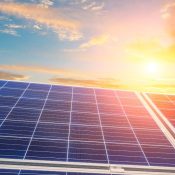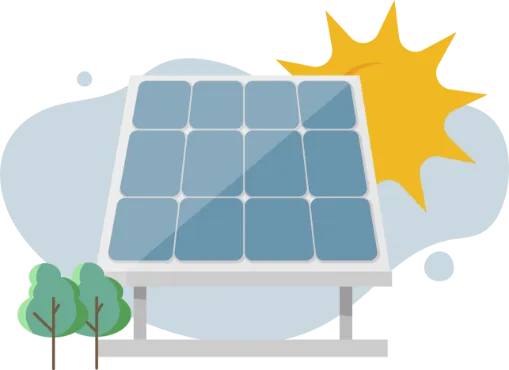50 MW Solar Power Plant Cost in Ireland
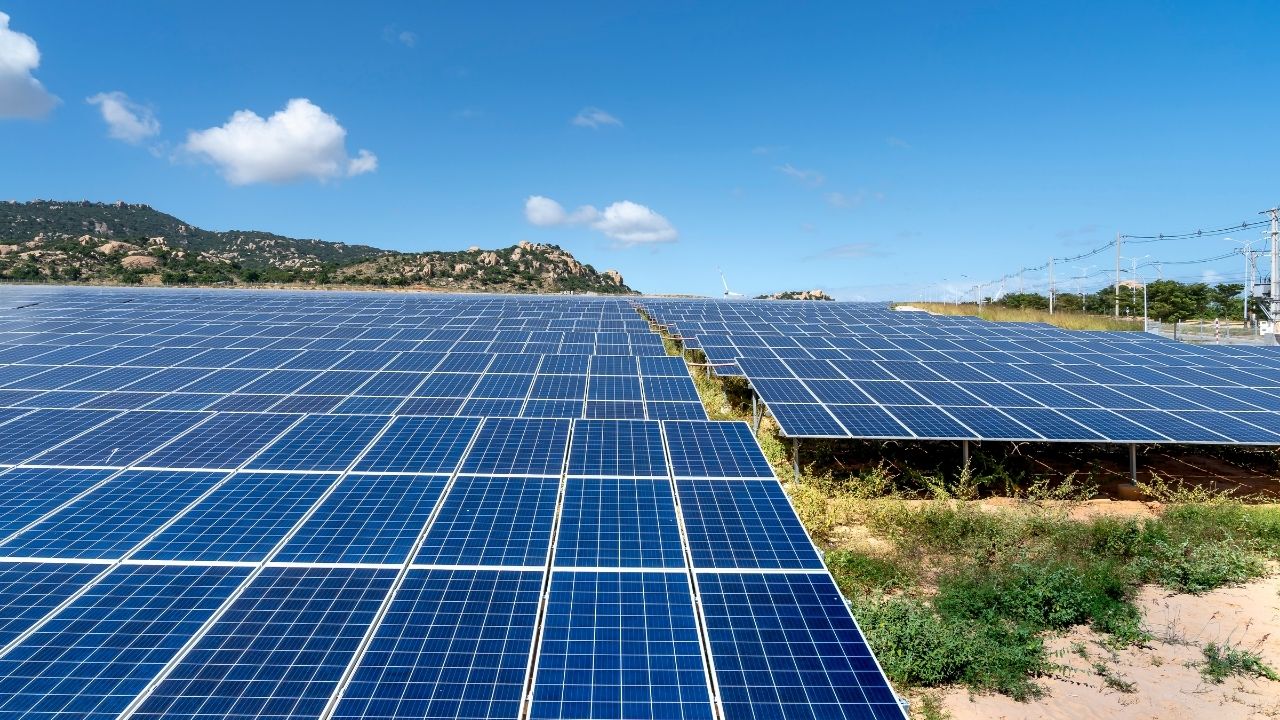
Understanding the expenses involved in creating a 50 MW solar power plant in Ireland can be a bit tricky, especially if you’re new to renewable energy. We’ve been through this process ourselves, so we know it can be overwhelming. That’s why we’ve done a lot of research on this topic.
Our research has shown that there are important things that affect the actual costs, like installation fees and possible financial help from the government. So, let’s explore this topic together and shed some light on it. Are you ready to learn more? So, let’s get started.
Do You Know the Cost of Solar Power Plants in Ireland?
The cost of solar power plants can vary depending on several factors, including the size and capacity of the plant, the type of photovoltaic panels used, and the location of the project.
Factors that Affect Cost
The cost of solar power plants in Ireland can vary depending on several factors. One important factor is the size or capacity of the plant, measured in megawatts (MW). Larger plants generally require more materials and labour, resulting in higher costs.
Another factor is the type of solar panels used. Different types have varying efficiencies and prices, which can impact overall costs. The location of the plant also matters because it affects sunlight exposure and land availability.
Additionally, government policies and regulations play a role, as they can provide grants or tax breaks that lower installation costs for homeowners. These factors combined determine the total cost homeowners might expect when switching to solar energy in Ireland.
Comparison to Other Renewable Energy Sources
Solar energy is a great choice when compared to other renewable energy sources. It’s clean, sustainable, and doesn’t produce harmful emissions like fossil fuels. Solar power also has the advantage of being widely available, as long as there’s sunlight.
Unlike wind or hydroelectric power, solar panels can be installed on rooftops or in small spaces without the need for large structures or bodies of water. Additionally, solar panels have low maintenance costs and can last for up to 25 years before needing to be replaced.
This makes solar energy a cost-effective option in the long run. With Ireland’s potential capacity for solar energy projected to reach 1,500 MW by 2022, it’s clear that solar power is playing an increasingly significant role in our country’s transition towards cleaner and more sustainable electricity generation.
Government Grants and Tax Breaks
We have some good news for Irish homeowners looking to switch to solar energy! The government offers grants and tax breaks to help reduce the cost of installing solar panels. These incentives aim to make renewable energy more accessible and affordable for everyone.
One of the main grants available is the SEAI Solar PV Grant, which provides financial support for the installation of solar photovoltaic (PV) panels. You can receive up to €1,200 per kWp (kilowatt peak) installed, with a maximum grant amount of €3,600.
This grant can significantly offset the initial cost of installing solar panels in your home.
In addition to grants, there are also tax benefits that you can take advantage of when switching to solar energy. Homeowners who install solar panels may be eligible for a 13.5% VAT reduction on their equipment and installation costs.
This reduction can result in substantial savings and make going solar even more attractive.
How to Switch to Solar Energy
When considering switching to solar energy, it is important to choose a reputable installer who can guide you through the process of planning and financing your solar panel installation.
With various options available, homeowners can take advantage of government grants and tax breaks to make the transition more affordable. Additionally, understanding maintenance and operating costs will help ensure that you are well-prepared for the long-term benefits of solar power.
Choosing the Right Installer
When you’re ready to switch to solar energy, choosing the right installer is crucial. Look for a reputable and experienced installer who understands the specific requirements of solar panel installation in Ireland.
They should have proper certifications and accreditations, such as being registered with SEAI (Sustainable Energy Authority of Ireland). It’s also important to check their track record and customer reviews to ensure their reliability and quality of work.
Get multiple quotes from different installers so you can compare prices and services offered. Don’t forget to ask about warranties and after-sales support as well. By taking the time to find the right installer, you can have peace of mind knowing that your solar power system will be installed professionally and efficiently.
Planning and Financing Options
When considering switching to solar energy, there are a few important factors to consider in terms of planning and financing. First, you’ll want to choose the right installer for your solar panel installation.
Look for experienced professionals who have a track record of successful installations. They can guide you through the process and ensure that everything is done correctly.
Next, it’s important to explore your financing options. The cost of solar panel installation can vary depending on factors such as the size of your system and any additional equipment or upgrades needed.
Fortunately, there are government grants and tax breaks available to help offset these costs. Be sure to research what incentives are available in your area.
When it comes to maintenance and operating costs, solar panels generally require very little upkeep. However, it’s still a good idea to budget for occasional cleaning or repairs if necessary.
Maintenance and Operating Costs
Maintaining and operating a solar power plant in Ireland involves some costs, but they are generally low compared to other forms of energy. Solar panels require minimal maintenance as they have no moving parts.
Regular cleaning is needed to keep them free from dust and debris, which can be done easily with water or a gentle detergent solution. The cost of this maintenance is usually affordable, especially considering the long lifespan of solar panels.
In terms of operating costs, solar power plants are often considered more cost-effective than traditional sources like fossil fuels. Once the initial investment is made in installing the panels, there are no ongoing fuel costs since sunlight is free.
This means that operating expenses mainly consist of monitoring system performance and occasional repairs if necessary.
It’s important to note that proper planning and design during installation can help minimise any future maintenance or operational issues. Working with experienced installers who understand local regulations and can provide high-quality equipment will contribute to a smoother operation overall.
Conclusion: The Future of Solar Energy in Ireland
In conclusion, the future of solar energy in Ireland looks bright. With the growth of solar projects like Ballymacarney Solar Farm, ORIT Trust Project, Highfield Solar, and Solas Eireann 7 Ltd., it is clear that there is a strong investment in renewable energy.
The cost of solar power plants varies depending on factors like installation and maintenance, but government grants and tax breaks can help make it more affordable for homeowners to switch to solar.
As Ireland continues to tap into its potential for solar power generation, we can expect cleaner and more sustainable energy solutions for the country.
Planning a switch to solar energy?
Contact Going Solar now and Get Free Advice & Quote Within Minutes!
Frequently Asked Questions
Contact Going Solar Now!
Joe Brennan
Founder @ Going Solar
Joe Brennan, the founder of Going Solar, is dedicated to making solar power mainstream in Ireland and meet SEAI objectives. With a focus on affordability and sustainability, he is bringing renewable energy solutions to homes, reducing costs & environmental impact.
Recent Posts

